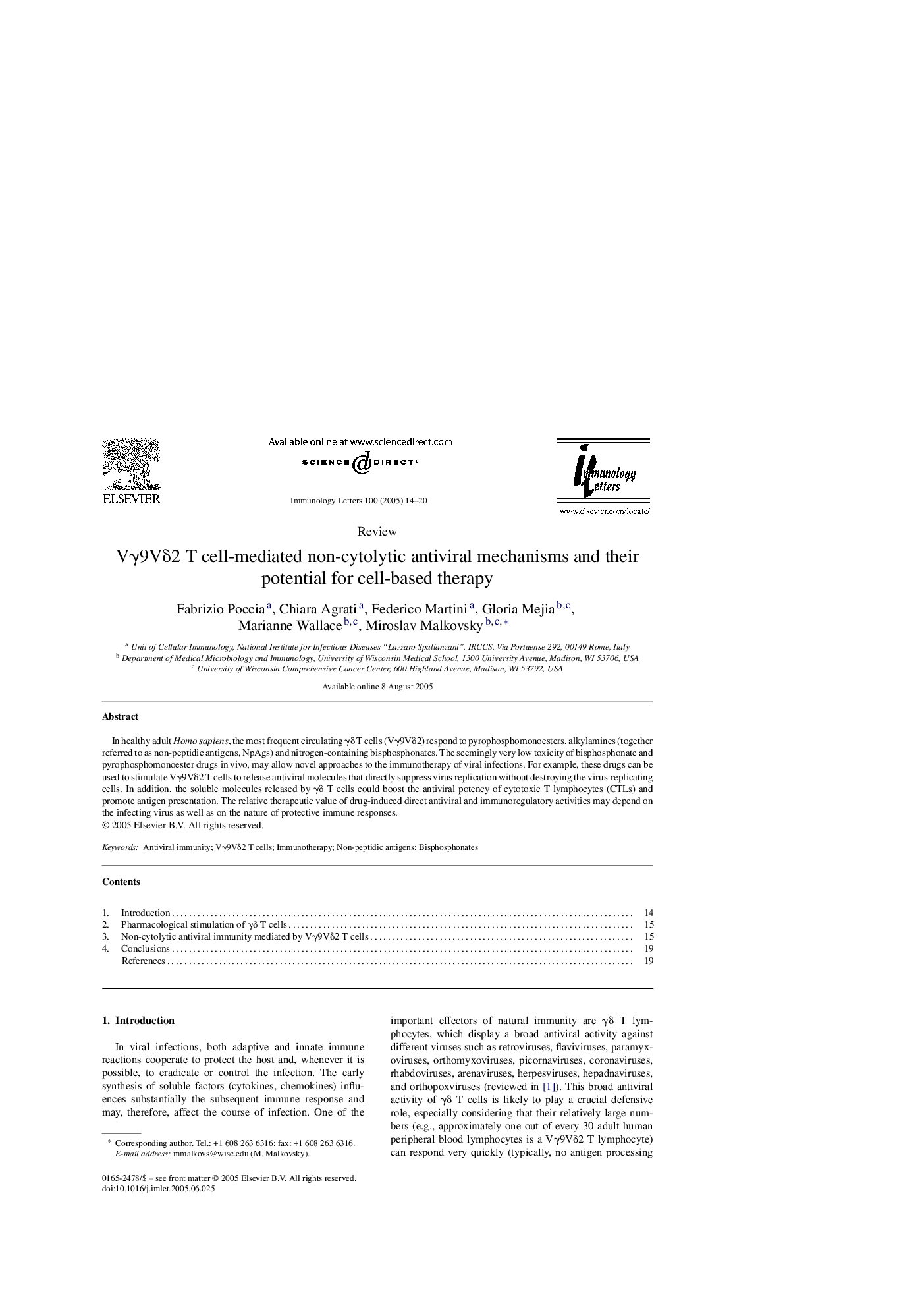| Article ID | Journal | Published Year | Pages | File Type |
|---|---|---|---|---|
| 9266272 | Immunology Letters | 2005 | 7 Pages |
Abstract
In healthy adult Homo sapiens, the most frequent circulating γδ T cells (Vγ9Vδ2) respond to pyrophosphomonoesters, alkylamines (together referred to as non-peptidic antigens, NpAgs) and nitrogen-containing bisphosphonates. The seemingly very low toxicity of bisphosphonate and pyrophosphomonoester drugs in vivo, may allow novel approaches to the immunotherapy of viral infections. For example, these drugs can be used to stimulate Vγ9Vδ2 T cells to release antiviral molecules that directly suppress virus replication without destroying the virus-replicating cells. In addition, the soluble molecules released by γδ T cells could boost the antiviral potency of cytotoxic T lymphocytes (CTLs) and promote antigen presentation. The relative therapeutic value of drug-induced direct antiviral and immunoregulatory activities may depend on the infecting virus as well as on the nature of protective immune responses.
Related Topics
Life Sciences
Immunology and Microbiology
Immunology
Authors
Fabrizio Poccia, Chiara Agrati, Federico Martini, Gloria Mejia, Marianne Wallace, Miroslav Malkovsky,
